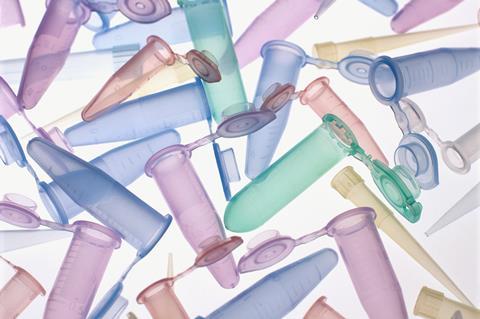Empower your students to make a tangible and positive impact on plastic waste with these hands-on classroom resources
Common Seas is a UK-based social enterprise focused on tackling the plastic pollution crisis. We aim to ensure every young person learns about the complex problem of plastic pollution, while also experiencing the wonders of our oceans. The key to achieving this? We urgently need educators to bring this topic into the classroom.
Chemist Alexander Parkes created the first manufactured plastic in 1862 as a substitute for ivory and tortoiseshell. The creation of synthetic plastics prevented disastrous extinctions, while also making luxury items affordable to the masses. Cheap, durable and adaptable, plastic clothes us, keeps food fresh and has even saved lives by revolutionising medical care.
The properties that make plastic so useful have also made it one of the most pervasive environmental and social issues of our time. To solve this problem, we need everyone on board. Our young people will be the ones researching and innovating with unlimited potential to make a positive impact for a waste-free future, in jobs that don’t yet exist. With a projection of 24 million new jobs as we move towards a circular economy, we need to start educating them now.

The plastic problem
Our society creates 220 million tonnes of plastic waste every year. Just 15% of this waste is recycled, while 40% pollutes our environment.
But it’s not just our oceans we’re filling with plastic. Earlier this year, Common Seas published world-first research confirming the presence of plastic in human blood. This is no longer just an environmental crisis, it’s a health issue.
Teachers are in a unique position to inspire their students in the science lab
This year, history was made at the United Nations Environment Assembly with a landmark agreement to develop a legally-binding treaty to end plastic pollution – a vital step towards a healthier, cleaner more stable climate. As a science teacher, you can prepare students for this bright future and, more importantly, inspire them to be part of the journey to get there.
We know young people care deeply about the environment and we’ve seen time and again that they are some of the most passionate and effective advocates for our planet. Educators must nurture this passion. So, Common Seas developed some classroom resources to help.
Turn the tide with Ocean plastics academy
Common Seas wants to help students develop a deep understanding of the plastics challenge. So, we created Ocean plastics academy to provide a ready-to-go suite of standards-aligned lessons, including a chemistry scheme of work and supporting resources for students aged 11–14.
Students will learn about polymerisation and how it makes plastic both brilliant for everyday purposes, as well as devastating to our oceans. They will analyse case studies and critically evaluate existing solutions, exploring questions such as: ‘Are compostable alternatives really the answer?’
Accessed more than 60,000 times, these resources are already making waves in UK classrooms: ‘The OPA resources were invaluable for enhancing engagement with chemistry in both periods of remote teaching. We are now rewriting our whole Y8 scheme of work around the oceans model.’ – KS3 chemistry teacher.
Challenge your class with Plastic clever schools
Young people need real-world experiences where they can apply new knowledge, practise skills and build confidence. Common Seas and Kids against plastic created the resource Plastic clever schools – a school-wide challenge to reduce plastic waste, with young people at the heart of the action and more than 500 schools already involved.
Single-use plastics are prolific in schools and the science lab is no exception: pipette tips, flasks, contaminated gloves – it all adds up. While some plastic items may be unavoidable, particularly in the lab setting, others are blatantly unnecessary. Teachers are in a unique position to inspire their students in the science lab. Inviting your students to identify these unnecessary plastics and find practical solutions is a powerful way to promote their own agency.
The Plastic clever schools student workbook guides young people through three simple stages: inspire, investigate and act. Each step empowers them to make a tangible and positive impact on plastic waste. With these resources, teachers can guide students on their first steps to understanding their own role in building a plastic waste free future. Through this challenge, teachers can equip their students to become active global citizens beyond the classroom walls. As active global citizens, students can go on to make the necessary difference that the environment, oceans and human health so desperately need at this critical time.
Find out more
Discover how analytical technician, Celine, develops ways to alter the structure of plastics so they become biodegradable in the natural environment.











No comments yet